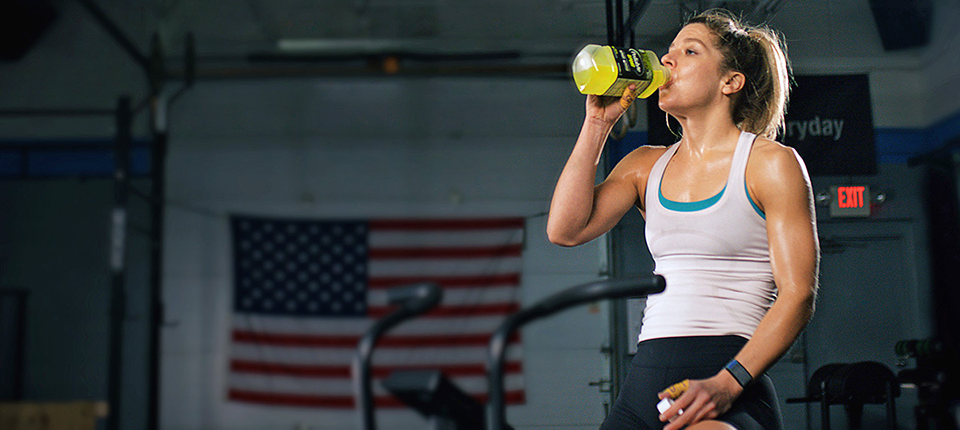
The Shortest Path: Understanding Rehydration
Designed for athletes, Pedialyte Sport offers an optimal balance of sodium and glucose for fast rehydration.
July 27, 2021
- Copy Link
- Share on X
- Share on Facebook
- Share on Linkedin
Elite athletes always have that laser focus.
They see the path they need to follow and take all the necessary steps to ensure that none of those steps is wasted. From extracting maximum energy from each calorie consumed to optimizing each minute of their workouts, they are models of efficiency.
So imagine being a pack-leading, world-class marathoner and realizing that you had run in the wrong direction for several hundred meters. Being forced to retrace those misguided steps, just to return to where your competition had since passed.
Imagine not reaching your goal because you didn't have the best information.
Now imagine reaching your fitness goals by keeping on the right path.
There Are Things We Know …
A new Harris poll taken of Americans who exercise intensely at least three days per week, reveals that 93% understand the importance of maintaining hydration throughout a workout and that 89% realize hydration is important for muscle recovery. This level of understanding is crucial to staying properly hydrated during exercise, thus ensuring the maximum benefit of that workout.
… And Things We Think We Know.
However, that same poll revealed that almost half (46%) of those who report regular, intense exercise at least three days per week believe that soda and energy drinks can help aid rehydration after intense exercise. This conflicts with guidance from the scientific community that these drinks can contribute to dehydration due to large amounts of sugar and insufficient levels of electrolytes.1,2,3
In other words, while the right rehydration can optimize exercise benefits and muscle recovery, other liquids may send athletes in the wrong direction.
The Importance of Electrolytes
Challenging exercise, whether done by elite athletes or those that work out at a high level several times per week, can lead to fluid loss, accompanied by the loss of electrolytes: special minerals that help the brain, heart, gut and muscles send and receive electrical signals.
Abbott, building on 50 years of rehydration science, recently introduced Pedialyte Sport, a scientifically-designed solution that helps athletes at all levels rehydrate from intense exercise, by providing three times the electrolytes and only 25% the sugar of the leading sports drink.4
Pedialyte Sport has five key electrolytes, all of which play an important role in promoting rehydration and muscle support before, during and after intense exercise:
- Sodium to avoid muscle cramping
- Chloride for fluid balance
- Potassium for muscle and nerve function
- Magnesium to help provide oxygen to muscles
- Phosphate for muscle repair
Pedialyte Sport also helps athletes avoid the effects of mild to moderate dehydration, like muscle cramping, fatigue and headache by replacing fluids lost in sweat, while also having an optimal balance of glucose and sodium.
Seek Balance in All Things, Including Glucose
One key to success in sports and fitness is balance. It's training hard but not so hard as to impede recovery. It's using various muscle groups in combination with cardio challenges to elicit the best results.
Carbohydrates like glucose provide energy to our cells, making them critical for proper body function. However, excess sugar can slow rehydration and delay recovery.
Pedialyte Sport (which has a quarter of the sugar found in leading sports drinks4), is designed to provide an optimal balance of sodium and glucose for rehydration. Five key electrolytes support fluid balance in the body and are vital to muscle and nerve function, as well as help facilitate muscle repair.
Not All Hydration Products Are Created Equal
Athletes often spend years educating themselves on exercise and nutrition options to get the most out of their efforts. Pedialyte Sport is designed to take the guess work out of rehydration, providing five key electrolytes for fast rehydration and muscle support.
Knowing the science behind rehydration and how your body works can help ensure the most direct route to your fitness goals without being misdirected by sugary energy drinks that can contribute to dehydration and its negative effects.
Stay smart. Stay hydrated. Stay on track.
References
1 Baker LB, Jeukendrup AE. Optimal Composition of Fluid-Replacement Beverages. Compr Physiol. 2014(4):575-620.
2 McDermott BP, et al. National Athletic Trainers' Association Position Statement: Fluid Replacement for the Physically Active. J Athl Train. 2017;52(9):877-895.
3 Sawka MN, et al. Exercise and Fluid Replacement. American College of Sports Medicine Position Stand. Med Sci Sports Exer 2007;39(2):377-90. doi: 10.1249/mss.0b013e31802ca597.
4 Pedialyte® Sport has 1380 mg sodium and no more than 14g sugar per liter; the leading sports drink has ~460 mg sodium and ~58 g sugar per liter.
For the latest on Abbott’s life-changing technology, get updates directly in your inbox.